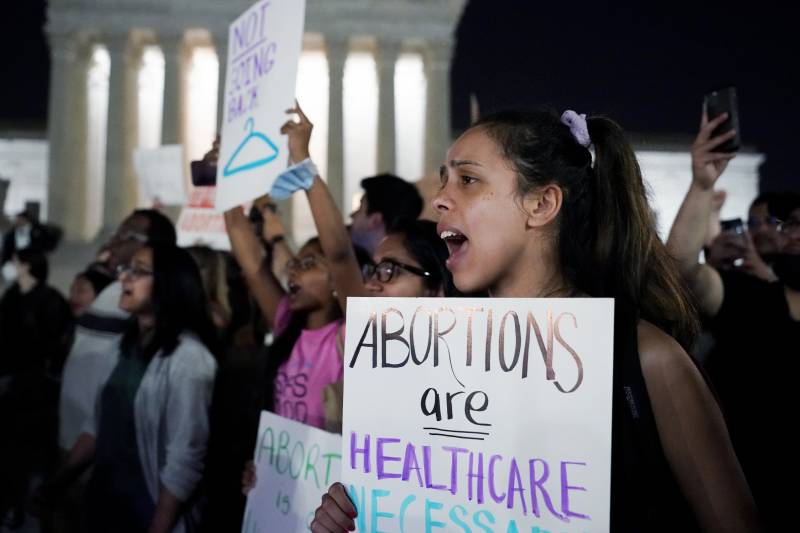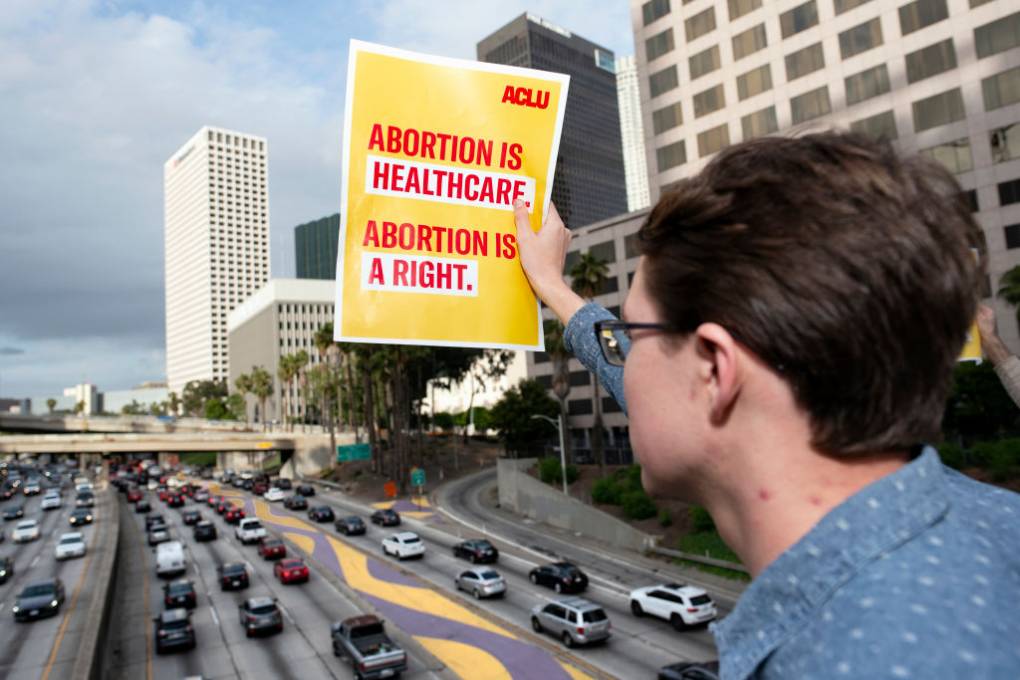KQED update Friday, June 24: The decision in Dobbs v. Jackson Women’s Health Organization was announced on June 24, overturning Roe v. Wade and eliminating the constitutional right to an abortion.
California guarantees the right to abortion in statute and the state constitution. Our state’s abortion laws are the strongest in the United States. Both officials and abortion providers have made it very clear that abortion access in California will not change because of the U.S. Supreme Court’s decision. Read more about the overturning of Roe v. Wade.
Original story continues:
Nearly 1 in 4 women in the U.S. are expected to get an abortion at some point in their lives, according to a 2017 study.
If Roe v. Wade is struck down, as a leaked draft memo from the U.S. Supreme Court suggests it could be, it will have a major impact in states across the country that have already signaled their intention to restrict or ban abortion.
States where abortion likely would become illegal if Roe v. Wade is overturned
Eighteen states have “trigger laws” to ban abortion if Roe is overturned or have pre-Roe abortion bans still on the books. Additionally, some states have laws — not currently in effect — banning abortion after six to eight weeks.

According to the Guttmacher Institute, a research group that supports abortion rights, 58% of U.S. women of reproductive age — or 40 million — live in states that are "hostile" to abortion.
The Supreme Court verified that the document published by Politico is authentic while noting that draft opinions can change before a final ruling. Chief Justice John Roberts has ordered an investigation into the leak.
The draft opinion about overturning Roe would not ban abortion nationwide but instead allow states to drastically restrict or even ban abortion, which advocates for reproductive rights say could have seismic consequences for the country.
Here's what a future without Roe v. Wade could mean:
More than 20 states have laws that could restrict or ban abortion soon after the Supreme Court overturns Roe, according to Guttmacher.
One type of statute, called a "trigger law," is designed to take effect after a Supreme Court ruling. Some states also still have pre-Roe abortion bans on the books that haven't been enforced. Other laws express the intent of states to crack down on abortion if permitted by the Supreme Court.


9(MDAxOTAwOTE4MDEyMTkxMDAzNjczZDljZA004))